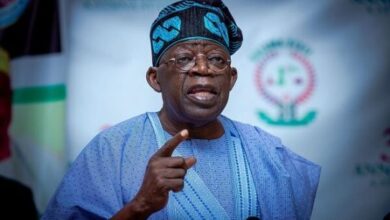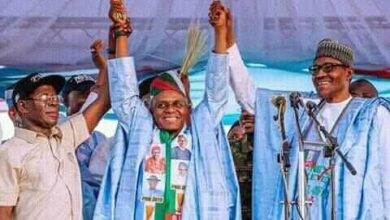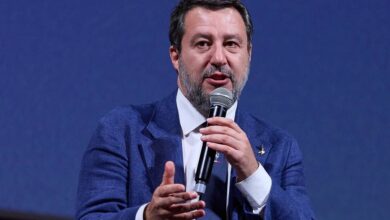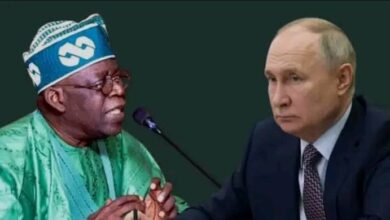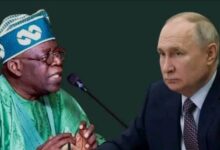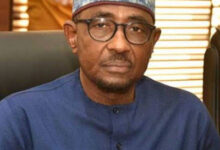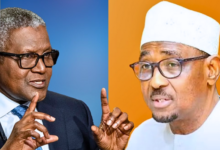Sanusi II speaks on Dangote Refinery’s dufficulties, says ‘Nigerian State has been captured by a renter class’
*They see state as site for rent extraction rather than as agent for development *Tinubu-led administration is 'preventing policy capture by agents’ interests - VP Shettima *Mild drama as Jonathan denies sacking Sanusi as CBN Governor *You sacked me but constructively, Sanusi replies *Says, 'I continue to respect Jonathan and I don’t have grudges against anyone'
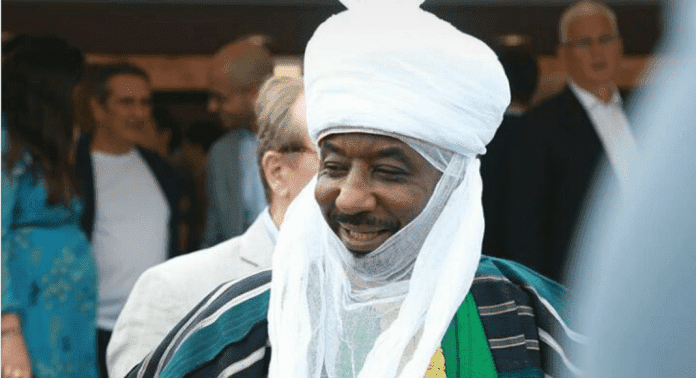
By KEMI KASUMU
In what looks like first shot of reactions from the home state of most daring emancipator of Nigeria from many years of dysfunctional local refinery, Alhaji Aliko Dangote, GCON, the Emir of Kano, His Royal Highness Alhaji Muhammadu Sanusi II, on Wednesday September 26, 2024, added his voice in support of the world’s richest black man against his persecutors.

The former Governor Central Bank of Nigeria (CBN), who decried what he described as the frustration of Dangote Refinery on account of vested interests, said its needless difficulties was arising from situation of state capture by an anti-development renter class.
Emir Sanusi II was, himself, troubled that some Nigerians exist, who would rather sacrifice for self interests a long sought collective opportunity of the country’s freedom from petroleum products importation that has been the bane of its backwardness and hardship of its citizens.
Although the Presidency through President Bola Tinubu’s Special Adviser on Information and Strategy, Mr. Bayo Onanuga, disclosed Wednesday that the Federal Government would not intervene in the ongoing fuel price controversy between Dangote Refinery and the NNPCL, commonly said among the political camp of the President is that it is impossible for Tinubu to operate with an Alhaji Aliko Dangote, who did not support him during the 2023 general elections.
Nigerians, who saw that position as unpatriotic, have severally countered them with a word of caution to excuse Dangote from their politics as, according to them, he is a businessman and not a politician.
They said Dangote is for Nigeria and not for sectional or political partisanship as he started under a Peoples Democratic Party (PDP) administration of Goodluck Jonathan, GCFR, and was finally encouraged till completion by an All Progressives Congress (APC) administration of Muhammadu Buhari, GCFR.
As the Federal Government, which Onanuga claimed would not intervene, recently attempted to allegedly kill the private refinery achievement by its denigration of Dangote as producer of substandard products, Alhaji Aliko Dangote had gone all out to say the land he used for the refinery building was not for free as he paid $100 million to Lagos State Government for it.
Dangote also has never stopped to defend himself against further misinformation he believes the Federal Government has pushed out about his refinery among which was to make Nigerians believe that locally produced Dangote Refinery petrol is costlier than the imported.
He countered the government at each point of such misinformation including telling Nigerian people how NNPCL could not have bought fuel from him in Naira as it claimed, when it did not sell crude oil to him in Naira although President Tinubu made public order asking it to sell crude oil to him in Naira, and how the government-owned company was still importing fuel at the same time it was lifting petrol from his local refinery.
He also countered the government when another misinformation came by the NNPCL, which activities believably could not be possible without the knowledge and directives of the senior Minister of Petroleum that President Bola Tinubu is. Dangote said his fuel, which is the purest, is 15 percent cheaper than foreign product being imported by the NNPCL.
All of these difficulties and controversies the Emir of Kano, Alhaji Muhammadu Sanusi II, believes are unnecessary when he ventilated his worries that instead of grabbing with open arms the opportunity the locally established Dangote Refinery offers the country, those with vested interests are frustrating it.
The Emir, who stated this during the launch of a book, ‘Public Policy and Agents Interests: Perspectives From The Emerging World,’ authored by former Minister of Finance, Shamshudeen Usman, alongside other contributors including himself, said with the emergence of a privately owned indigenous refinery, Nigeria is supposed to be benefiting from an end to fuel importation.
But Emir Sanusi said, “The Nigerian State has been captured by a renter class that sees the state as a site for rent extraction rather than as an agent for development. This is the fact and this is what has destroyed Nigeria. People get into office and when they get into office, what they are thinking of is how much they can make out of the state rather than how they can use the state to serve the citizenry.
“There are many examples in this country of public servants who have acted creditably, served and delivered for this country. But why is Nigeria where it is today?
“They refer to the Dangote Refinery. And there have been issues around the refinery. I don’t know what the details are. But this is a country that has been importing petroleum products for so many years.
“This was an opportunity for weaning itself from importing petroleum products. Instead of grabbing this opportunity with open arms, we are frustrating it.
“Why would anyone stop us from having the capacity to produce our own refined petroleum products? Because there are vested interests who have profited from Nigeria continue to import this product.
“They could be oil marketers internationally, they could be people locally who have been profiting from these subsidy scams. And this is the end because every excuse disappears when you’re no longer importing and you’re producing locally,” he said.
For weeks, Dangote Refinery and the National Nigerian National Petroleum Company Limited (NNPCL) have been locked in a broad dispute over crude supply and pricing.
Speaking about the lead author of the book, Sanusi who noted that the former minister lectured him in University, added that it is commendable that having served as one of the longest serving public officials, has never been invited by EFCC, “It is rare,” he said.
Meanwhile, the Vice President, Senator Kashim Shettima, who was represented by his Special Adviser, Aliyu Modibbo, assured that the Tinubu-led administration is “Preventing policy capture by agents’ interests.”
He said the government is deliberate about safeguarding policies of the government to ensure they deliver in the interest of Nigerians.
He said the government has “investing in capacity building for government officials” in that regard.
The author, Usman, advocated the use of the book for research, adding that there’s need to improve on policy and governance. The minister who recounted his experience while growing up, noted God has blessed him in so many ways.
Noting that he has been to have a good family blessed and a wonderful health, he said “Some of you are 50 years old but I can challenge many of you here to run a marathon and defeat you,” he said.
The book reviewer, Joe Abah, described the book as insight and a robust research material for intellectuals and students alike.
Abah, who thanked Usman and the contributors, for undertaking the task of writing the book, said it would help to shape government policy.
He further dismissed insinuations and claims that the challenge with Nigeria is not policy challenge, adding that the intent for the formulation of policies have been a challenge.
Meanwhile, a mild drama ensued at the book launch as former President Goodluck Jonathan and Sanusi differed over the latter’s sack as CBN Governor in 2014.
Recall that Sanusi was suspended as CBN governor during Jonathan’s tenure, following a drama over the former’s claim that 49 billions dollars was missing from the government coffers.
Reacting to Sanusi’s deposition in the book on the 49 billion Dollars saga, Jonathan Wednesday said such an amount was never missing from the government coffers under his watch, noting that it was not true.
Jonathan, in his opening remark as chairman of the book launch, said as much as he agreed with the concept of the book and recommended it for research and policy framing, Sanusi’s claim on the missing 49bn dollars was wrong.
The former president who said Sanusi was not sacked but suspended, said there was no way such a huge amount would be stolen in Nigeria and the impact won’t be felt.
He said for a country whose budget was about 32bn dollars at the time, it was impossible for the 49bn dollars to have been stolen from the country’s purse.
Jonathan also recounted how he was confronted by then President of Germany, Angela Merkel , over the matter and that he explained that such money couldn’t have been stolen from a struggling country.
He however said he was vindicated about the porosity of the claims after the former CBN governor began to change the narrative from 49bn to 20bn and later 12bn dollars.
Jonathan further added that Price Water Coopers (PWC) who investigated the matter revealed that no such amount was stolen but that 1.48bn could not be accounted for by the NNPC at the time.
He also recalled that the then Senate committee on Finance, led by Senator Ahmed Makarfi, investigated the issue and didn’t find the claims to be true.
Jonathan said, “Let me mention that I did not agree completely with some issues raised by one of the contributors. But I don’t intend to join issues because he is our royal father. And he is here.
“The one he raised that he was sacked because he blew a whistle that the Federal Government lost $49.8billion is not quite correct. He was not sacked, he was suspended because the Financial Reporting Council queried the expenditure of CBN. And there were serious infractions that needed to be looked at. That was the reason. But somehow, the time was short. So before we finished, his tenure elapsed. Probably, he would have been called back.
“On the issue of $49.8billion, till today I am not convinced that the federal government lost $49.8 billion.”
He recalled his meeting with former German Chancellor, Angela Merkel and how he was able to convince her that no such money was missing.
“And that year, our budget was $31.6 billion. So for a country that had a budget of $31.6 to lose about $50 billion and salaries were paid, nobody felt anything. The researchers that wrote this book need to do further research.
“And more so, when our revered royal father came up with the figures. First $49.8 billion, later $20 billion and later $12 billion. I don’t even know the correct one.
“And immediately that happened, we commissioned PwC to do a forensic audit. The report they came up with was that $1.48 billion that they couldn’t provide account for and NNPC should pay that money into the Federation Account. They did not say we lost $12 billion, $20 billion or $49.8 billion.
“Sen. Ahmed Makarfi is still alive. He was the Chairman Senate Committee on Finance. And immediately that publication came out, the Senate directed their Finance Committee headed by Makarfi to investigate. And they used external and professional auditors to look into it, they didn’t see either $50 billion, $20 billion or $12 billion,” he said.
Responding to Jonathan, who dismissed claim by the Emir that he was sacked as CBN Governor in 2014, however, Sanusi, who took to the podium minutes after Jonathan’s comment, insisted that he was sacked by Jonathan.
Sanusi is a co-author of the book written by Shamshudeen Usman, who is former Minister of Finance and who served as Minister of Planning under the Jonathan’s administration.
Jonathan had dismissed Sanusi’s claim in the book that he was sacked by him after he revealed that 49 billion was stolen under his watch.
Sanusi, however, said he was constructively sacked by Jonathan.
Immediately he was called to the podium, the Kano Emir said, “My boss who sacked me. I was constructively dismissed.”
He added, “I continue to respect Jonathan and I don’t have grudges against anyone.”


